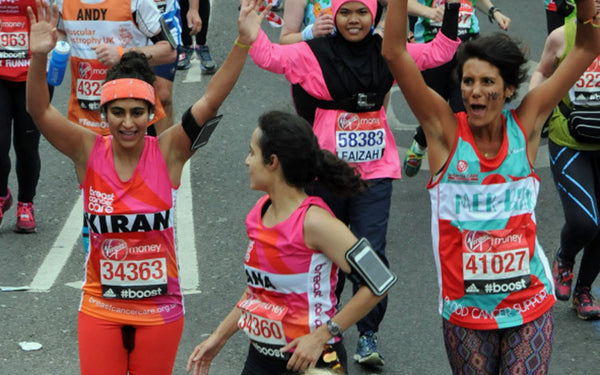What is Free Bleeding and What To Know if You Want to Try It

Many of us bleed through our clothes sometimes, but it’s usually an accident and we’re typically sporting standard period protection at the time. Free bleeding is similar, but without any attempt at sanitary protection. You just bleed. Freely.
Why do people free bleed?
It’s not always a choice. Worldwide, the majority of people who have periods can’t access period products and even in the U.S, period poverty is a big issue.
Some people who free bleed want to limit the environmental impact of their periods, or just feel more comfortable that way, especially when they’re at home or have a light flow. Period underwear has made this effort much easier, and less messy.
But most of the time, when we talk about free bleeding, it’s not about necessity or personal choice. It’s about challenging the still all-too-common idea that we should be ashamed of our periods, and often it’s also about drawing attention to inequality and discrimination.
Who started it?
People have been going without sanitary protection for millennia, sometimes as a form of feminist rebellion. As a movement, though, free bleeding has only garnered media attention in the last four years or so.
Back in 2014, Members of the misogynist forum 4Chan shared posts about free bleeding on social media in an attempt to humiliate feminists into discussing and embracing the issue. Instead, it reawakened interest in using period blood as a form of protest and brought the idea into the mainstream.
What have been some of the most significant free bleeding protests?
In 2015, Charlie Edge and Ruth Howarth took part in a free-bleeding demonstration outside British Parliament as a protest against the “tampon tax” – the fact that in the UK and many other countries sanitary protection is taxed as a “luxury” product.
That same year, 26-year-old Kiran Gandhi free-bled her way through the London marathon, for her own comfort and to highlight the lack of access to period products for poor women, plus the fact that we’re all expected to continue with normal life when we have our periods, despite the blood and pain.
Last year, artist Cass Clemmer posted a photo on Instagram to draw attention to the fact that trans and non-binary people menstruate too, and to encourage us to be more inclusive when we talk about periods.
What are the arguments for and against it?
Advocates say that having a period is a normal bodily function and we shouldn’t feel like we have to be ashamed of or hide it. They think free bleeding can spark debate about bodily autonomy, especially when it comes to marginalized groups, and raise awareness of issues surrounded period inequality and lack of access to period products.
Others think that there are more important feminist issues, or that it’s shocking or distasteful and that periods should be kept private. Occasionally, cis male media columnists pull together an outraged rant on the topic, too, but if you haven’t ever had a period, it’s hard to see why you should get a vote.
What do I need to know if I want to try it?
You’re probably going to go through more clothes and sheets and towels than usual, so make sure you stock up. Don’t do it at someone else’s house unless they specifically invite you to, and either embrace the fact that your life will be a little messier from now on, invest in some period undies that take care of the mess, or make sure you have a good stain remover on hand.
Photo courtesy of Medium
0 comments